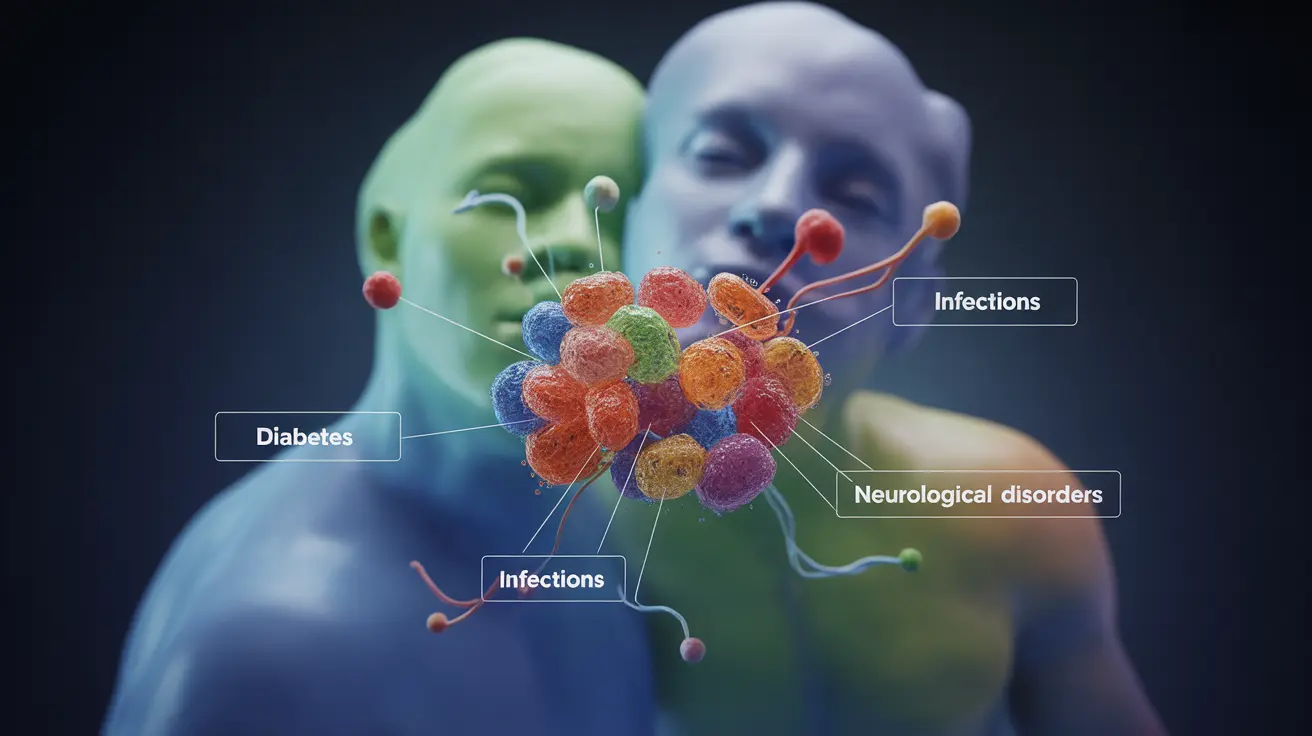Experiencing a persistent sweet taste in your mouth when you haven't eaten anything sweet can be both puzzling and concerning. This unusual sensation, while sometimes temporary, could signal underlying health conditions that require medical attention. Understanding the various causes and knowing when to seek professional help is crucial for maintaining your overall health.
In this comprehensive guide, we'll explore the medical conditions that can cause a sweet taste in your mouth, examine the connection to common health issues like diabetes and acid reflux, and help you understand when it's time to consult a healthcare provider.
Common Medical Causes of Sweet Taste in Mouth
Several medical conditions can trigger a persistent sweet taste sensation in your mouth:
Neurological Conditions
Damage to the nerves responsible for taste perception can lead to taste disturbances, including phantom sweet tastes. This may occur due to:
- Head injuries
- Stroke
- Multiple sclerosis
- Bell's palsy
Metabolic Disorders
Various metabolic conditions can affect how your body processes substances, leading to taste alterations:
- Vitamin B12 deficiency
- Zinc deficiency
- Hormonal imbalances
- Metabolic syndrome
Diabetes and Sweet Taste Connection
One of the most significant medical conditions associated with a sweet taste in the mouth is diabetes. When blood sugar levels are poorly controlled, it can lead to:
- High glucose levels in saliva
- Sweet-tasting saliva
- Changes in taste perception
Diabetic Ketoacidosis
In severe cases, diabetic ketoacidosis can cause a distinct sweet or fruity taste in the mouth, often described as similar to acetone. This is a serious condition requiring immediate medical attention.
The Role of Infections and Sinus Problems
Various infections can affect taste perception and lead to a sweet taste in the mouth:
Upper Respiratory Infections
Sinus infections, common colds, and other upper respiratory conditions can alter taste perception by:
- Affecting taste buds
- Causing post-nasal drip
- Creating inflammation in the nasal passages
Oral Infections
Dental issues and oral infections may contribute to taste disturbances through:
- Bacterial growth
- Gum disease
- Tooth decay
- Poor oral hygiene
GERD and Taste Alterations
Gastroesophageal reflux disease (GERD) can significantly impact taste perception by:
- Causing acid reflux into the mouth
- Damaging taste buds
- Creating unusual taste sensations
- Affecting saliva composition
When to Seek Medical Help
You should consult a healthcare provider if you experience:
- Persistent sweet taste lasting more than a few days
- Sweet taste accompanied by other symptoms
- Unexplained weight loss or gain
- Changes in appetite or thirst
- Other unusual taste disturbances
Frequently Asked Questions
What are the common medical causes of a persistent sweet taste in the mouth?
Common medical causes include neurological conditions, metabolic disorders, vitamin deficiencies, and hormonal imbalances. These conditions can affect taste perception and lead to persistent sweet tastes.
Can diabetes or diabetic ketoacidosis cause a sweet taste in the mouth?
Yes, diabetes can cause a sweet taste in the mouth due to elevated blood sugar levels affecting saliva composition. Diabetic ketoacidosis, a serious complication, can cause a distinctive sweet or fruity taste that requires immediate medical attention.
How can infections or sinus problems lead to a sweet taste in the mouth?
Infections and sinus problems can alter taste perception through inflammation, post-nasal drip, and effects on taste buds. Upper respiratory infections and oral infections can both contribute to taste disturbances.
Could acid reflux (GERD) be responsible for a sweet taste sensation in the mouth?
Yes, GERD can cause taste alterations, including sweet taste sensations, due to acid reflux affecting taste buds and changing saliva composition. The condition can also cause other taste disturbances.
When should I see a doctor about a sweet taste in my mouth and what tests might be needed?
Seek medical attention if the sweet taste persists for more than a few days or is accompanied by other symptoms. Your doctor may perform blood tests, oral examinations, and neurological assessments to determine the underlying cause.




